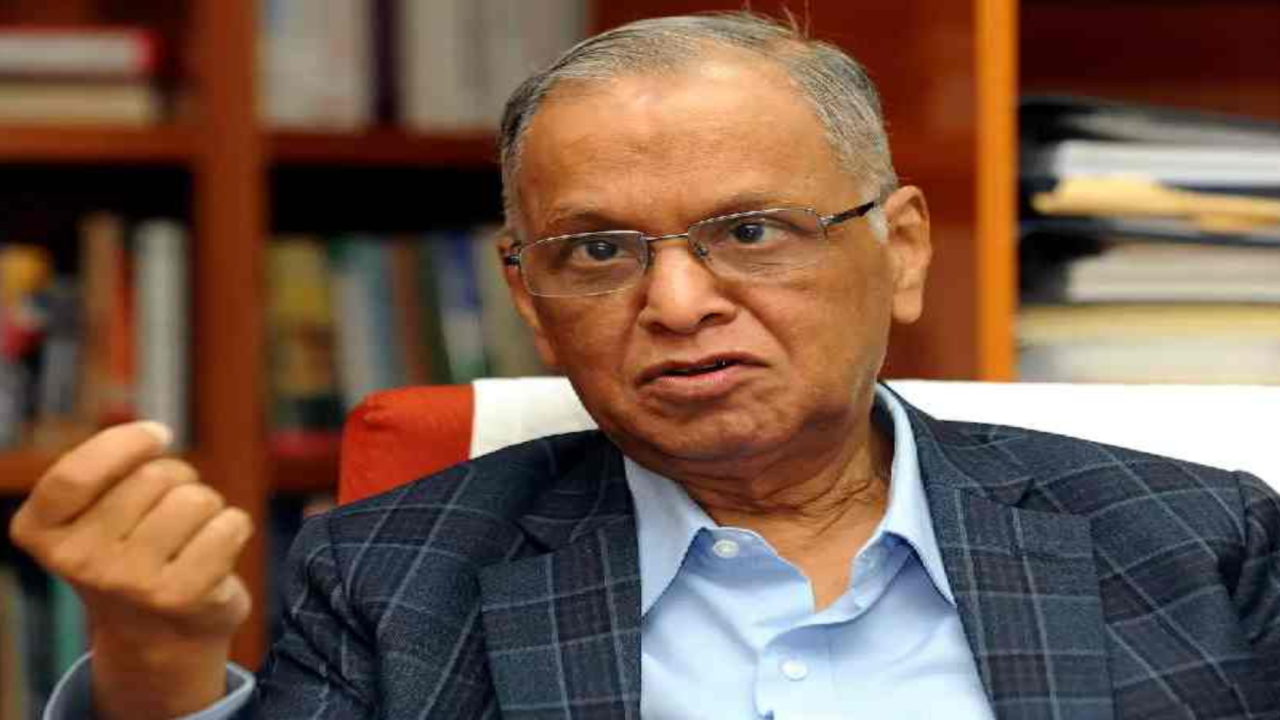Infosys Founder Narayana Murthy Criticizes India’s Readiness for Large Language Models
In a provocative statement that has stirred discussions within the technology and business sectors, Infosys Founder N.R. Narayana Murthy expressed strong reservations about India’s current approach and readiness to invest in building large language models (LLMs). Speaking to Moneycontrol on November 14, 2024, Murthy asserted that India lacks the essential infrastructure and mindset required to support advanced AI projects. He stated that the Indian mindset is “not oriented towards problem-solving,” a barrier that, according to him, hinders the nation’s progress in developing cutting-edge AI technologies.
The Importance of Big Data: Why Murthy Says India Isn’t Ready for LLMs?
Murthy emphasized that without robust databases and access to big data, investing in LLMs is premature. Large language models, which power AI-driven applications and chatbots, rely heavily on vast datasets to function effectively. “We have not been able to build large databases, and without big data, artificial intelligence has no value,” Murthy remarked, pointing out a critical gap in India’s technological ecosystem. According to him, the lack of substantial data resources means that AI models built in India would be underpowered and less effective, making investments in this area unwise at this stage.

“An LLM Doesn’t Make Any Sense Right Now”: Murthy’s Hard-Hitting Statement on India’s AI Ambitions
Murthy did not hold back in expressing his skepticism about India’s aspirations to build LLMs. “An LLM doesn’t make any sense,” he stated, underscoring that AI technology needs a foundation of extensive data to yield meaningful results. Without access to large, structured datasets, any AI efforts would lack the depth and intelligence needed to make an impact. Murthy’s comment reflects his belief that India should focus on developing foundational data and infrastructure rather than rushing to keep up with global AI giants. His stance serves as a reminder that a successful AI ecosystem requires more than just ambition—it needs solid, data-driven foundations.
The Indian Mindset: A Barrier to Problem-Solving and Innovation
One of the most striking aspects of Murthy’s statement is his critique of the Indian mindset toward problem-solving. He observed that the current mindset in India is “not oriented towards problem definition and problem-solving,” a perspective that he believes limits the nation’s progress in technology and innovation. Problem-solving is at the heart of developing technologies like AI, as it involves identifying gaps, understanding needs, and creating solutions. Murthy’s assertion highlights a cultural and educational gap, where skills like critical thinking, innovation, and independent problem-solving are not emphasized enough.
AI and Big Data: Why Infrastructure Matters More Than Ambition?
For India to compete on a global scale in AI and machine learning, infrastructure is essential. Large language models like OpenAI’s GPT series or Google’s BERT require immense computational power and access to massive datasets. Murthy’s statement suggests that, despite India’s growing ambitions, the country lacks the foundational infrastructure required to make substantial advancements in AI. Rather than investing in AI projects without adequate data, Murthy advocates for building an ecosystem that can support such technology sustainably. This involves not only access to data but also advancements in cloud computing, machine learning algorithms, and high-performance computing infrastructure.

A Wake-Up Call for Policymakers and Industry Leaders
Murthy’s remarks serve as a wake-up call for Indian policymakers, industry leaders, and educators. As India aspires to become a global technology leader, his statements emphasize the importance of nurturing a mindset geared towards innovation and independent problem-solving. The Indian education system, often criticized for its focus on rote learning, may need to evolve to cultivate analytical and critical thinking skills from an early stage. This shift could foster a new generation of thinkers and innovators capable of driving the country forward in AI, big data, and other advanced technologies.
In response to Murthy’s critique, industry experts are calling for educational reforms that emphasize creativity, critical thinking, and practical problem-solving. By developing these skills, India can better equip its workforce to contribute meaningfully to global advancements in technology, particularly in data-driven fields like AI.
India’s AI Aspirations: The Road Ahead
Despite Murthy’s reservations, India’s technology sector has shown significant growth and potential. Major Indian companies, including Infosys, TCS, and Reliance, are investing heavily in digital transformation and AI. However, Murthy’s statement suggests that these efforts could fall short without a strategic focus on data infrastructure and a problem-solving mindset. Building large databases and adopting a culture of innovation are essential steps toward realizing India’s aspirations in AI.
India’s ambitions to develop its own LLMs would require not just financial investments but a comprehensive overhaul of the underlying technological and educational framework. Industry stakeholders believe that collaboration with global AI leaders could help bridge the infrastructure gap while building a foundation for indigenous AI research and development.

Murthy’s Vision: Prioritize Foundational Strength Over Hasty AI Initiatives
Murthy’s insights highlight a pragmatic approach toward AI development. His emphasis on foundational readiness rather than ambitious but premature projects encourages a shift in perspective. Instead of investing in AI models without sufficient data, Murthy’s stance suggests focusing on building a robust data ecosystem, enhancing computational capabilities, and fostering a culture of innovation. Such a focus would allow India to make meaningful contributions to AI in the future, rather than facing setbacks due to lack of preparation.
A Call for Change: Cultivating an Innovative and Problem-Solving Mindset
For India to progress in AI and big data, Murthy’s call for a shift in mindset resonates strongly. Educators, policymakers, and industry leaders need to encourage an environment that values problem-solving and critical thinking. By cultivating these skills, India can foster a generation of tech innovators who are not only capable of adopting global technologies but also of creating groundbreaking advancements.
Murthy’s statement also opens a conversation about the role of public and private sectors in addressing these challenges. While the government can facilitate infrastructure development and provide incentives, the private sector must prioritize innovation and invest in research that promotes India’s technological self-sufficiency. Bridging the gap between ambition and capability is a shared responsibility that could enable India to emerge as a global AI leader.
The Path Forward: Building a Sustainable AI Ecosystem in India
While Murthy’s critique highlights current limitations, it also points towards a path forward. By focusing on building a sustainable ecosystem for AI, India can lay the groundwork for future success. This involves strengthening data infrastructure, encouraging public-private partnerships, and fostering a mindset oriented towards continuous learning and problem-solving. The journey may be challenging, but with strategic investments and a shift in cultural approach, India can position itself as a significant player in the global AI landscape.

